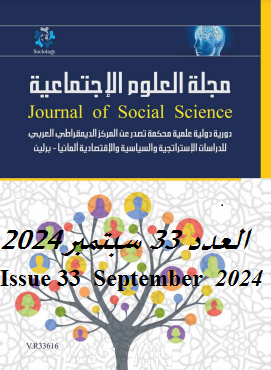Family language policy for bilingual Moroccan families
Keywords:
language policy, family, attitudes, practices, management, agencyAbstract
This research addresses the family language policy of bilingual Moroccan families, by focusing on households where one or both parents speak the Tamazight language in a context where Moroccan Arabic (Darija) sociolinguistically dominates. The study aims to identify the attitudes, ideologies, practices, and language strategies that these families employ to maintain the Tamazight language within the family, transmit it to future generations, and enhance their children's proficiency in it, or alternatively, to explore the shift towards Moroccan Arabic monolingualism. The research employed structured interviews as a tool for data collection and statistical analysis to derive its findings. The study concludes that the surveyed families, which represent a sample model for many others sharing similar attitudes and practices, strategically and practically support languages and varieties with higher symbolic value, such as standard Arabic and Moroccan Darija, and material value, primarily foreign languages like English and French. Their explicit or implicit, conscious or unconscious language policies, interacting with the overarching language policies, sectoral levels, social structures, and the effectiveness of the family and its members, contribute to the children’s shift away from the Amazigh language and its partial or total loss. This trend persists despite the recent introduction of Tamazight language into the educational system and media, which could, among other factors, lead to its severe erosion or even extinction in the medium term
Downloads
Published
Issue
Section
License
Copyright (c) 2024 Journal of Social Sciences

This work is licensed under a Creative Commons Attribution-NonCommercial 4.0 International License.
This work is licensed under CC BY-NC 4.0






